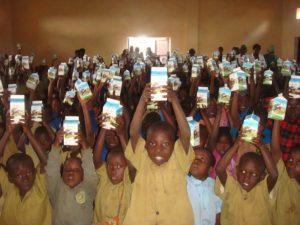Type of Dialogue
Stage
Convened by
Language of Dialogue Event
Date/time
To:
Geographical focus
Format
Please review the details below for registration information if available or contact the Convenor if you would like to attend.
Curator
Description
The foods and beverages that people consume have a profound impact on their health. The scientific connection between food and health has been well documented for many decades, with substantial and increasingly robust evidence showing that a healthy lifestyle including following a healthy dietary pattern can help people achieve and maintain good health and reduce the risk of chronic diseases throughout all stages of the lifespan. Its shown that the roots of poor nutrition lie in human behavior and improvements in nutrition are not possible without broad, widespread changes in the everyday behaviors and practices of people.
In Rwanda, the available research suggests that knowledge of good deity is high but there is a huge gap of ‘ideal practices’ in feeding and the sub-optimal practices which ultimately lie behind high rates of stunting (33%) and anaemia (37%) among children under five years. Knowledge, attitude and practice survey 2018, indicate that about 88%, caregivers of children under five are knowledgeable about the required optimal nutrition for children required but only 22% of children aged 6-23 months are fed a minimum acceptable diet. Also, over-nutrition is rising, overweight cases in Rwandan women increased nationwide from 12% in 2005 through 16% in 2010 to 21% in 2015, reaching to 40% in urban areas.
Topics:
- Promoting and creating demand for healthy and sustainable diets among Rwandan population.
- Reducing waste while achieving optimal nutrition among Rwandan population at all life stages of lifespan.
Questions:
- How can Rwanda promote and create demand for healthy, sustainable diets and reduce waste at all stages of the lifespan?
- What legislative framework does Rwanda have to protect healthy diets among the above mentioned 3 categories of the population but also reduce waste?
Objectives:
- Discuss deeply on how can Rwanda promote and create demand for healthy and healthy and sustainable diets
- Discuss how can Rwanda reduce food waste among childhood, school age and adults
- Identify and recommend appropriate strategies required to promote and create demand for healthy and sustainable diets, reduce waste hence achieve optimal growth and development of all individuals at all life stages of lifespan.
Expected outputs:
- Consensus built on promotion and creating demand for healthy and sustainable diets
- Appropriate strategies required to promote and create demand for healthy and sustainable diets and reduce waste are identified
- Increased understanding of social and behavioral bottlenecks of sustainable consumption nutritious food in Rwanda.
Category of invitees: Public Institutions, Private Sector and development partner including UN agencies.
Acknowledgement


